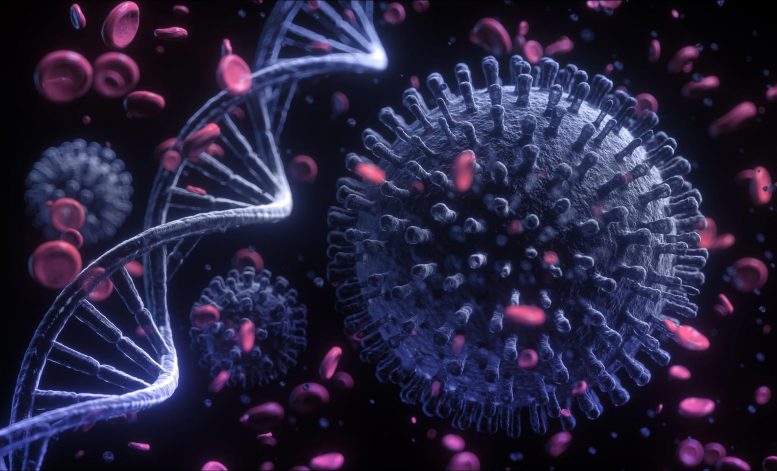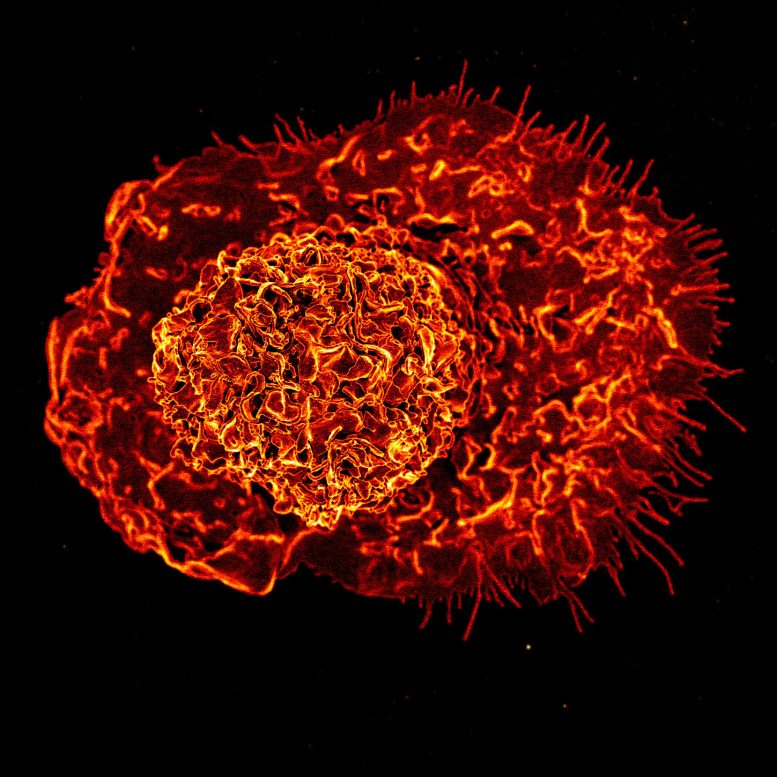
Research funded by NIH connects changes in inflammatory protein and emphasizes the significance of vaccinations.
A recent study supported by the National Institute of Allergy and Infectious Diseases, a branch of the National Institutes of Health, suggests that severe cases of COVID-19 might lead to persistent changes in the innate immune system, our body’s initial barrier against disease-causing agents. This could shed light on the reasons behind the widespread organ damage observed in the illness and the elevated inflammation levels in individuals experiencing long COVID. The research was recently published in the journal Cell.
Research Methodology and Findings
Researchers led by Steven Z. Josefowicz, Ph.D., of Weill Cornell Medicine in New York City examined immune cells and molecules in blood samples from 38 people recovering from severe COVID-19 and other severe illnesses, as well as from 19 healthy people. Notably, the researchers established a new technique for collecting, concentrating, and characterizing very rare blood-forming stem cells that circulate in the blood, eliminating the need to extract such cells from bone marrow.
In these rare stem cells—the parents of immune-system cells—taken from people recovering from COVID-19, the scientists identified changes in the instructions for which genes got turned on or off. These changes were passed down to daughter cells, leading them to boost the production of immune cells called monocytes.

In the monocytes of people recovering from severe COVID-19, the changes in gene expression led the cells to pump out greater amounts of molecules called inflammatory cytokines than monocytes of people who were healthy or had non-COVID-19 illnesses. The researchers observed these changes as much as a year after the participants came down with COVID-19. Due to the small number of study participants, the scientists could not establish a direct association between cellular and molecular changes and health outcomes.
Investigating the Role of IL-6
The investigators suspected that an inflammatory cytokine called IL-6 might play a role in establishing the changes in gene expression instructions. They tested their hypothesis both in mice with COVID-19-like disease and in people with COVID-19. In these experiments, some of the subjects received antibodies at the early stage of illness that prevented IL-6 from binding to cells. During recovery, these mice and people had lower levels of altered stem cell gene-expression instructions, monocyte production, and inflammatory cytokine production than subjects that didn’t receive the antibody. In addition, the lungs and brains of mice that received the antibodies had fewer monocyte-derived cells and less organ damage.
Conclusion and Implications
These findings suggest that SARS-CoV-2 can cause changes in gene expression that ultimately boost the production of inflammatory cytokines, and one type of those cytokines perpetuates the process by inducing these changes in stem cells even after the illness is over. Additionally, the findings suggest that early-acting IL-6 is likely a major driver of long-term inflammation in people with severe COVID-19.
These findings shed light on the pathogenesis of SARS-CoV-2 infection and may provide new leads for therapies. The results also underscore the importance of staying up to date with recommended COVID-19 vaccines, which are proven to protect against serious illness, hospitalization, and death.
Reference: “Epigenetic memory of coronavirus infection in innate immune cells and their progenitors” by Jin-Gyu Cheong, Arjun Ravishankar, Siddhartha Sharma, Christopher N. Parkhurst, Simon A. Grassmann, Claire K. Wingert, Paoline Laurent, Sai Ma, Lucinda Paddock, Isabella C. Miranda, Emin Onur Karakaslar, Djamel Nehar-Belaid, Asa Thibodeau, Michael J. Bale, Vinay K. Kartha, Jim K. Yee, Minh Y. Mays, Chenyang Jiang, Andrew W. Daman, Alexia Martinez de Paz, Dughan Ahimovic, Victor Ramos, Alexander Lercher, Erik Nielsen, Sergio Alvarez-Mulett, Ling Zheng, Andrew Earl, Alisha Yallowitz, Lexi Robbins, Elyse LaFond, Karissa L. Weidman, Sabrina Racine-Brzostek, He S. Yang, David R. Price, Louise Leyre, André F. Rendeiro, Hiranmayi Ravichandran, Junbum Kim, Alain C. Borczuk, Charles M. Rice, R. Brad Jones, Edward J. Schenck, Robert J. Kaner, Amy Chadburn, Zhen Zhao, Virginia Pascual, Olivier Elemento, Robert E. Schwartz, Jason D. Buenrostro, Rachel E. Niec, Franck J. Barrat, Lindsay Lief, Joseph C. Sun, Duygu Ucar and Steven Z. Josefowicz, 18 August 2023, Cell.
DOI: 10.1016/j.cell.2023.07.019
The study was funded by the National Institute of Allergy and Infectious Diseases.